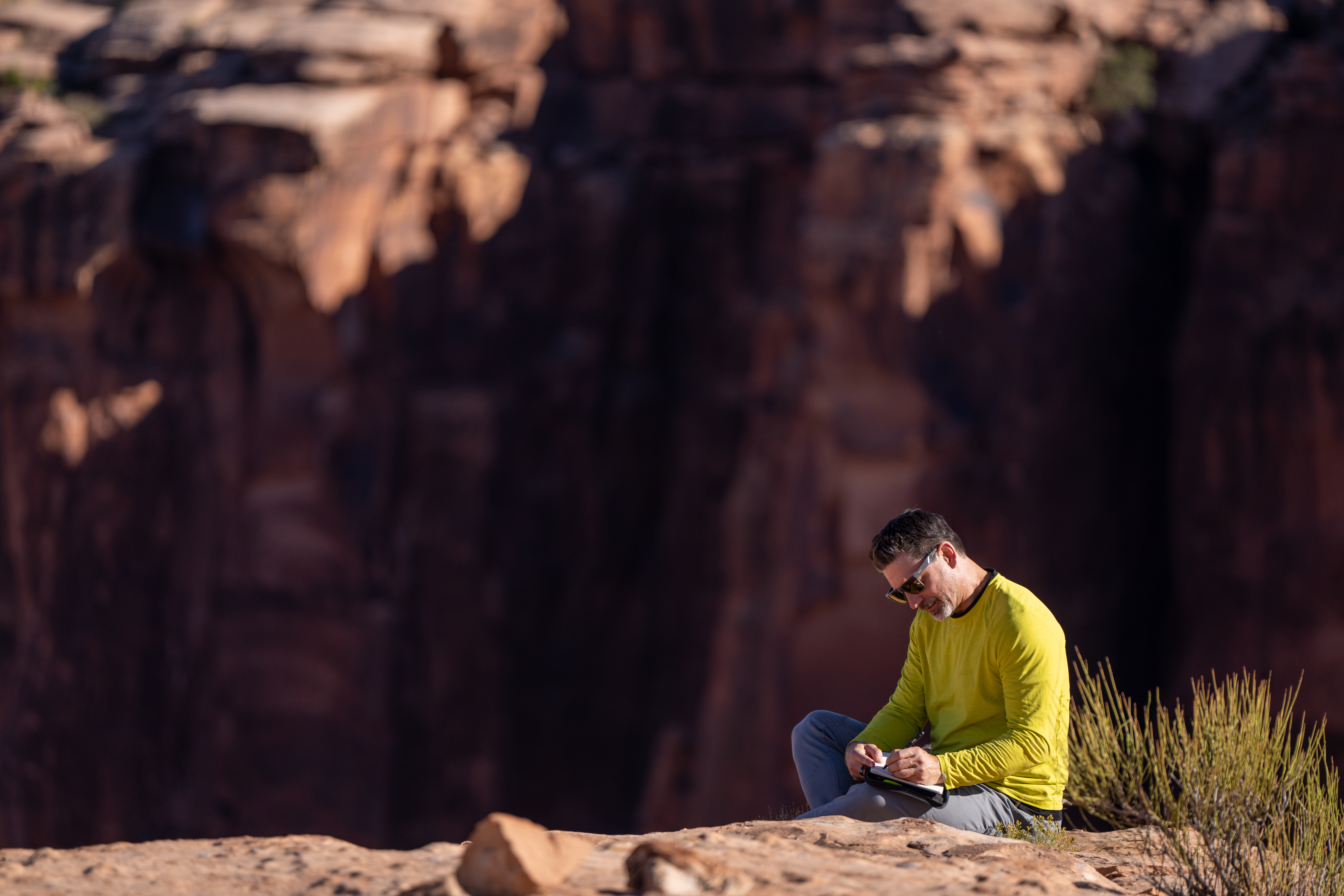SHARE
Understanding the Challenge of Modern Comforts
I frequently see it with my clients: they struggle with any uncertainty because they are so used to having specific solutions to meet their every need. Feel cold? Simply turn the thermostat up a degree. Crave a particular type of food? Get it delivered any time. Today, our needs are met with remarkable ease. And that’s become a significant problem.
It’s not our fault. But, remaining unaware of the consequence and impact that such ease and customization has on our lives – that is our problem to navigate.
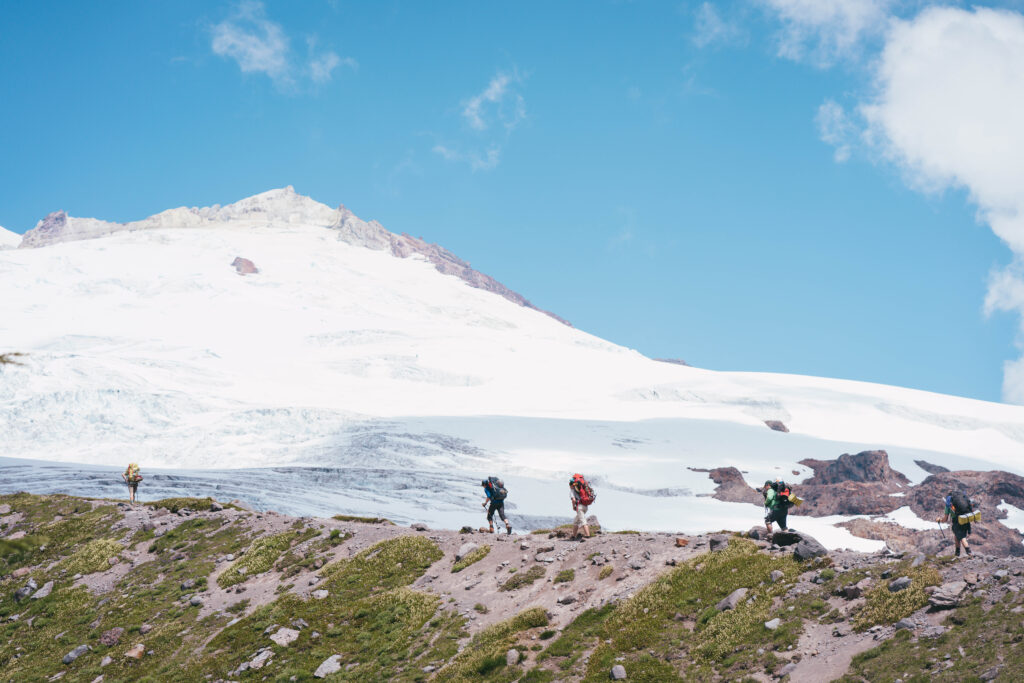
The Impact of Instant Gratification
My friend Todd Kashdan, a professor of psychology and senior scientist at George Mason University, co-authored The Upside of Your Dark Side: Why Being Your Whole Self — Not Just Your ‘Good’ Self — Drives Success and Fulfillment. In a 2023 interview on the Hidden Brain podcast, he discussed how our reliance on convenience and custom solutions makes it challenging to handle even minor misalignments in our everyday life.
As modern humans, we have evolved to meet our basic needs with such ease that we lose sight of what is truly important. We are sidetracked by trivialities. We fixate on minor details, like the specific color of a Stanley cup, and miss the bigger picture. We’re caught in a nonstop dopamine cycle: need, instant fix, repeat.
Facing Uncertainty
But what happens when we face uncertainties that don’t have an instant fix?
We struggle. We find such an inconvenience uncomfortable because we must linger in the uncertainty and discomfort. We are not accustomed to inhabiting such a space. And when I say we struggle, I mean we experience the situation as a “threat,” with typical reactions being to freeze, stay stuck, overreact, or flee.
Imagine that for a moment: uncertainty experienced as a threat. It sounds absurd. And yet, here we are, experiencing it directly.
Discomfort in Adventure
Let’s look at discomfort from the perspective of an adventure experience. Here in the mountains, our reactions are different. When you’re cold, can you turn up the thermostat? When you’re hungry, can you order food? No – we adapt and adjust our experience to fit the demand and need.
In the mountains, we travel only with the essentials. We bring only what’s crucial and necessary for our survival. Our pack holds the bare minimum of clothing, food, and technical gear needed to safely navigate and travel through the terrain – our life is pared down to the basics. And therein lies the beauty.
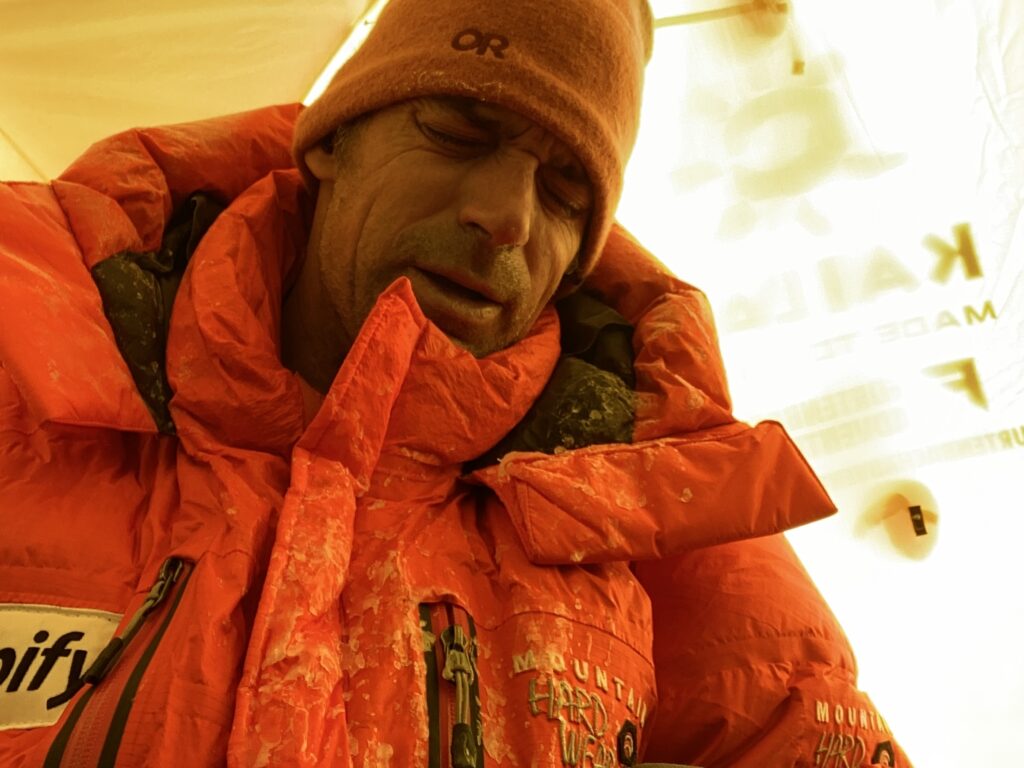
The Weight of Our Burdens
There is an axiom in climbing: “ounces equal pounds, and pounds equal pain.” The more stuff you bring with you, the more the pain adds up. “Stuff” becomes a burden that quickly gets heavier. The burden leads to feelings of being overwhelmed and, eventually, pain. Change becomes difficult because we become spread too thin, committing to and engaging in numerous distractions that prevent us from completing one thing at a time. Eventually, when the pain is unbearable, your burden–or you–drops.
Modern Solutions as Burdens
The metaphor of burden extends to all the modern solutions that we’re buried under. We’re so used to these instant comfort fixes, but we don’t need any of them. We can be cold for a time. We can eat not for cravings, but for sustenance.
It isn’t the most luxurious way to move through the world, sure, but it does allow you to thrive in environments otherwise unattainable.
In the adventure experience, when you pare down to the basics, it quickly becomes evident that you don’t need all of the minutiae you thought you did. You learn you can get by without it and handle discomfort – and it is actually liberating to be freed from the distraction of “stuff”. When the sun sets, do you really need a down jacket at night, or could you just hop into your sleeping bag? The benefit of this minimalist approach is that we don’t carry extra burdens.
And our pack, and our mind, are lighter as a result.
Rediscovering Lost Skills
Getting over mild discomfort is one of many skills we’ve lost as the world shifts tighter and tighter towards customized comfort solutions. Just a couple of generations ago, skills like camp craft, setting up a campsite, and surviving in the wilderness were common and expected. These skills are now becoming lost as we become increasingly dependent on external factors for our health, well-being, and existence. While we might teach children some of these skills intentionally—such as setting up a tent or backpacking—by the time they reach adulthood, these skills often fade away. Our reliance on self decreases as our skill sets niche down and we become tightly dependent on others for knowledge and skill that was previously general knowledge and practice.
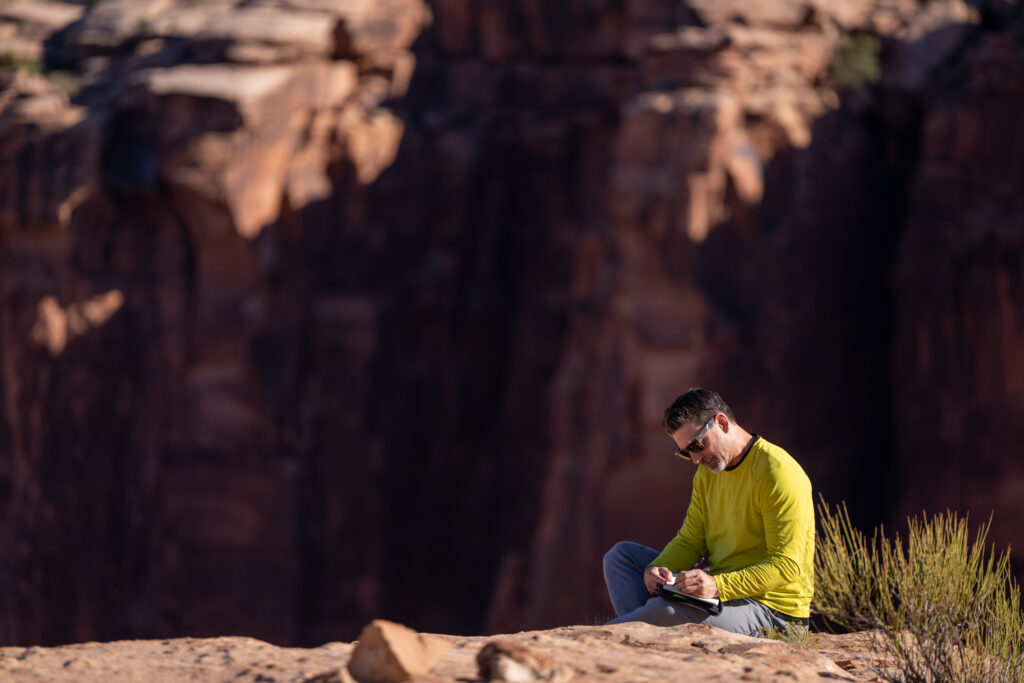
Embracing Discomfort
In turn, we spend our money avoiding discomforts, rather than minimizing the burdens. Such an aversion to discomfort comes at a cost, as it prevents us from learning and growing from our struggles. Because, in fact, discomfort is a gift.
Discomfort offers us space for learning and helps us differentiate between what truly needs addressing and what is merely a temporary nuisance. When we treat every discomfort as a severe threat, we limit our ability to function and grow. Similarly, if we respond to the world as though every challenge is a major threat, we restrict our experiences and prevent ourselves from living according to our values.
Developing Awareness
We don’t have to completely reject modern comforts, but most of all we should be aware of how our responses to discomfort affect our lives. I’m not advocating that we all become isolated survivalists living off the grid. Instead, we must simply develop our awareness of our reactions so that we’re not dominated by unnecessary burdens.
Consider a child who skins their knee. An exaggerated response might be expected from a very young child, but an older child should be able to assess the situation, recognize that the pain is temporary, and continue on.
Managing Discomfort as Adults
We need to maintain this awareness as adults, too. When faced with a difficult conversation with a partner, we can recognize that the discomfort is temporary. Understanding that both your feelings and your partner’s reactions are not permanent helps in managing the situation without resorting to all-or-nothing thinking. Or that on the mountain, there’s a difference between feeling chilled and having hypothermia–only one requires an immediate response.
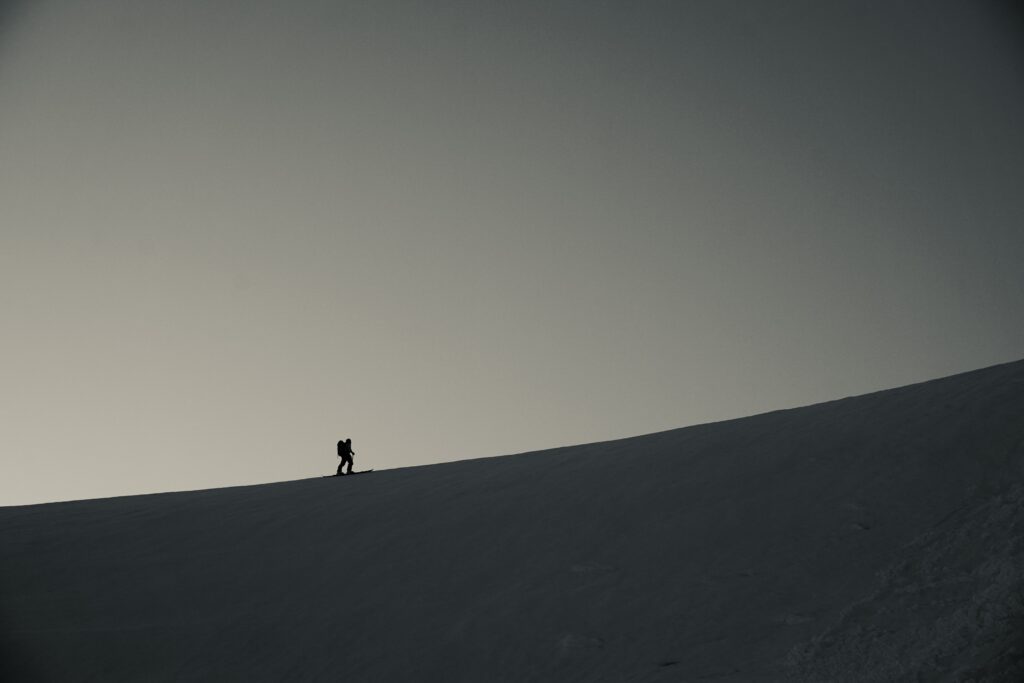
Moving Beyond Binary Thinking
Many of my clients struggle to take the first step towards change because they’re trapped in binary thinking. They see themselves in one place, like Indiana, and Mount Baker in Washington seems as distant as Mount Everest. They struggle to envision the steps in between, to embrace a beginner’s mindset, or to accept the discomfort of uncertainty.
Climbing Mt. Baker may as well be akin to going to the moon. Even though they posses every ability to function and thrive on the slopes of Mt. Baker and summit with ease.
As children, we’re guided through discomfort by parents and mentors, understanding that it’s a natural part of growth. As adults, we often mistakenly believe that this process ends. In reality, discomfort and growth continue hand in hand throughout our lives – discomfort is the catalyst we need to push beyond our preconceived notions of what is possible.
Overcoming Inertia
What happens is our familiarity with growth is replaced by a resistance to change. When we try something outside our comfort zone, it feels like trying to lift a heavy weight at the gym; the initial resistance convinces us to stop. “Dang, that’s heavy!” is all the feedback we need to keep from trying again. It’s as if we perceive the initial friction as an indication of the entire journey’s difficulty, without realizing that it’s just the beginning.
Avoiding Regret
But behind that inertia is regret. Regret that we didn’t try just a little more–because, just as in physical training, pushing through that initial resistance is where the real progress begins. It’s no wonder that so much of our adulthood regret is tied to our adulthood inertia.
Cultivating Awareness
Sure, as modern humans, we’re soft. But, more importantly, we must not give up too easily, mistaking any first bit of friction as a force of an insurmountable magnitude. And, by the same token, we must not endure challenges far longer than necessary, waiting until the pain reaches a breaking point before we act.
Seeking Support
Far better is to recognize when we need help and or when to take action before the situation escalates. Seeking support is not a sign of weakness but a proactive step towards resolution and growth–just like when we were kids.
Embracing Growth
Ultimately, we can handle discomfort by cultivating awareness and focusing on what’s most important to our survival. We can recognize how our responses to discomfort show up in our lives and learn to handle them without losing our grip. And we can push through the inertia and avoid regret when the rewards of growth far outweigh the initial challenges. By doing so, temporary discomforts become moments of growth, and we never lose sight of what truly matters.
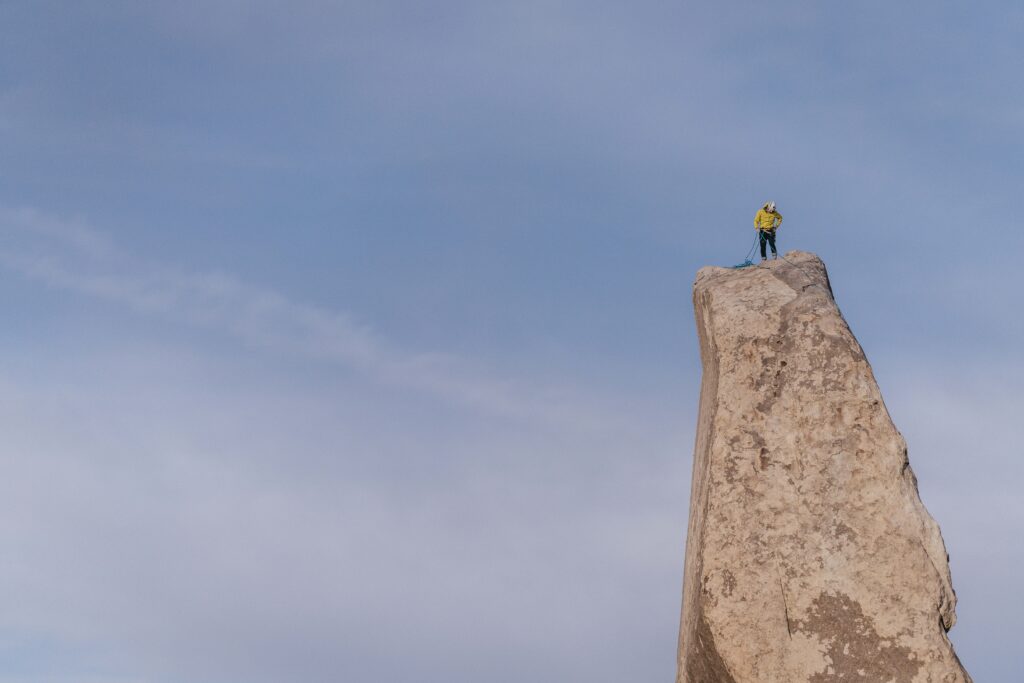
Download the Beyond Burnout Workbook – End the Cycle of Burnout & Exhaustion: Download Here
Related Articles:
Join the Adventure:
Ready to embrace discomfort and find true growth – no therapy sessions, no endless circular conversations, and no more delay? Join Matt for transformative experiences that provide clarity and reset your life for the next, great chapter. Learn more.
Author Bio:
Matt Walker is a men’s coach, international mountain guide, and author of Adventure in Everything: The Five Elements of Adventure. He helps men avert mid-life crises by defining success, aligning values, and living unapologetically. Through 1:1 coaching, group programs, and adventure retreats, Matt supports men in finding real and lasting change.
